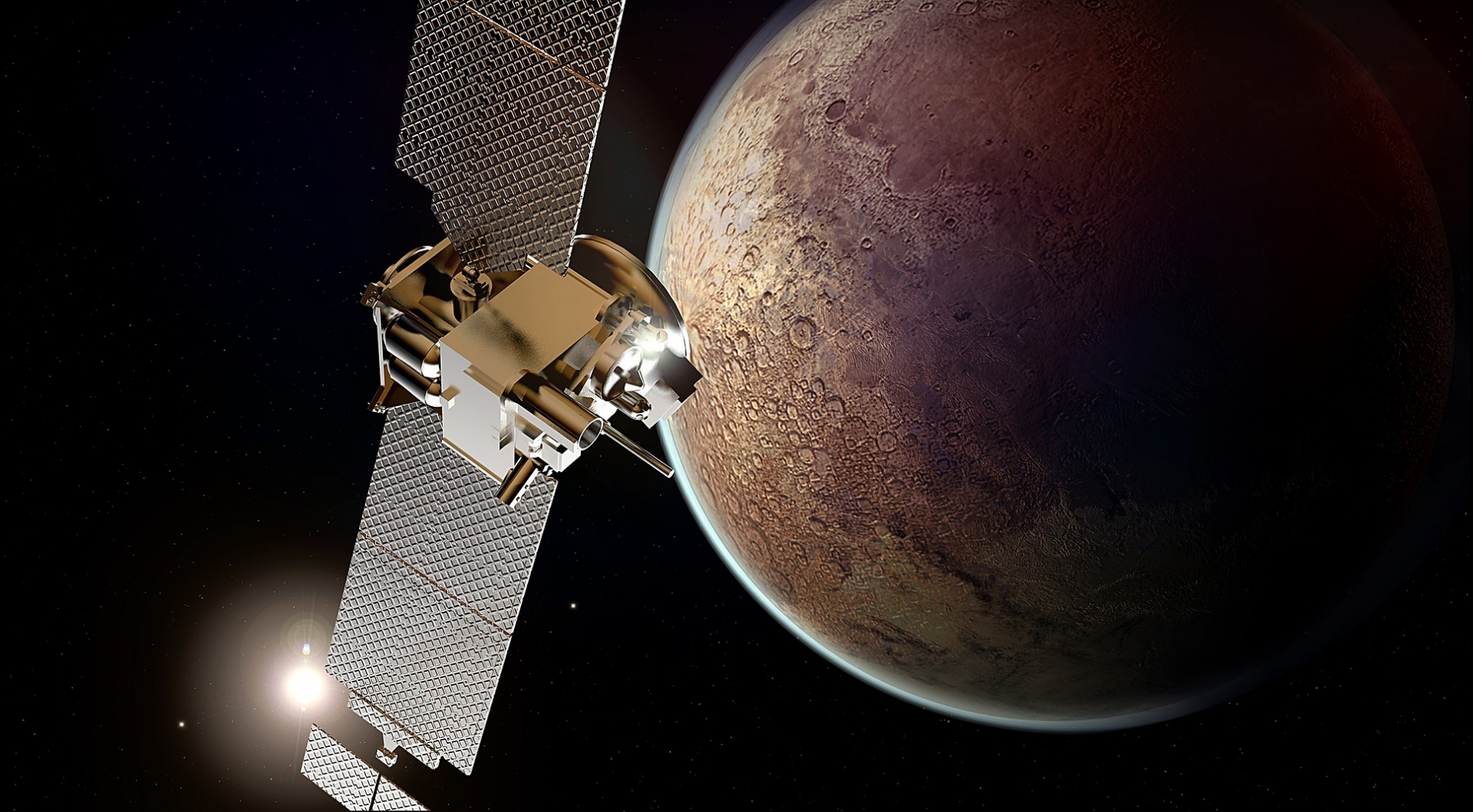YOUR BROWSER IS OUT-OF-DATE.
We have detected that you are using an outdated browser. Our service may not work properly for you. We recommend upgrading or switching to another browser.
Date: 30.10.2019 Category: general news, science/research/innovation
Preparation of a Martian nano-satellite mission is the main goal of the consortium created by Polish universities and the companies SatRevolution and Virgin Orbit. The enterprise’s science director is Professor Jan Dziuban from WUST.
 The agreement with respect to the establishment of the consortium was signed in Katowice during October’s Impactmobility rEVolution`19 conference. The initiative involves eight Polish universities - Wrocław University of Science and Technology, AGH University of Science and Technology in Cracow, Warsaw University of Technology, Gdańsk University of Technology, Poznań University of Technology, Łódź University of Technology, Catholic University of Lublin and Wrocław University of Life Sciences, as well as the companies SatRevolution and Virgin Orbit. The Polish nano-satellite, equipped with devices manufactured in our country, is to be launched towards Mars in late 2022.
The agreement with respect to the establishment of the consortium was signed in Katowice during October’s Impactmobility rEVolution`19 conference. The initiative involves eight Polish universities - Wrocław University of Science and Technology, AGH University of Science and Technology in Cracow, Warsaw University of Technology, Gdańsk University of Technology, Poznań University of Technology, Łódź University of Technology, Catholic University of Lublin and Wrocław University of Life Sciences, as well as the companies SatRevolution and Virgin Orbit. The Polish nano-satellite, equipped with devices manufactured in our country, is to be launched towards Mars in late 2022.
The idea to organise the mission was conceived during in conversations of Artur Chmielewski, PhD, director of many NASA space missions from the Californian Jet PropulsionLaboratory, Grzegorz Zwoliński, president of the Wrocław-based company SatRevolution, and Professor Jan Dziuban from WUST’s Faculty of Electronics, Microsystems and Photonics.
Researchers from Polish universities will be responsible mainly for all scientific issues, communication, software, as well as the development of instruments which will be placed aboard nano-satellites. These are to be observation systems adapted for taking photographs, infra-red detectors for temperature measurement, an ion- atomic spectrometer for measuring the composition and pressure of the atmosphere surrounding Mars and/or Phobos, its satellite. Onboard a nano-satellite, also a lab-on-chip micro-laboratory will be placed, which - if all goes well - will make it possible to conduct studies of the life potential of biological samples that experienced such a long exposure to space conditions.
 SatRevolution’s task will be to design and build a nano-satellite. According to initial assumptions, its size will be 6 to 12 U (1 U is 1 cubic decimetre), depending on whether the designers decide to apply a passive or an active version, equipped with engines. As for Virgin Orbit, it is responsible for mission planning, carrying the cargo into space, and cooperation with respect to mission control and signal transmission.
SatRevolution’s task will be to design and build a nano-satellite. According to initial assumptions, its size will be 6 to 12 U (1 U is 1 cubic decimetre), depending on whether the designers decide to apply a passive or an active version, equipped with engines. As for Virgin Orbit, it is responsible for mission planning, carrying the cargo into space, and cooperation with respect to mission control and signal transmission.
- The satellite will be produced in Poland, as will all the instruments onboard. Our American partners, on the other hand, have adequate logistics, i.e. rockets or horizontal launch platforms, which will enable launching the nano-satellite from almost any place. Without them, this mission wouldn’t be possible, but it should be emphasised that this is not an independent project of Virgin Orbit, as some of the world's media try to present it, but a Polish project with the participation of the USA partners - said Professor Jan Dziuban.
During the mission, the scientists are planning to conduct four experiments. First of all, they want to see what the surface of Mars looks like and take medium resolution photos. Then the nano-satellite will travel in the direction of Phobos and approach it at a distance enabling imaging with a few meters’ resolution.
The third experiment involves measuring the pressure around Phobos and the composition of its gaseous atmosphere. Flying through the high layers of the Martian atmosphere, the scientists also want to examine its composition.
The fourth experiment consists in placing a lab-on-chip micro-laboratory with a small grain of a control plant onboard the nano-satellite. During the flight, it will be frozen, and when it reaches Mars the temperature will be increased, the seed will be irrigated, and then the scientists will check if and with what force it germinates as well as how the roots develop.
- The mission will be very difficult to carry out. Even minimal changes in the gravitational conditions of the Solar System can affect the flight of our nano-satellite, causing it to hit Mars or fly by at a distance of, for example, 300,000 km. It will be a success if we manage to reach the vicinity of Mars and conduct at least one of the planned experiments. It will then make a significant contribution to the development of our knowledge about Mars - emphasised Professor Jan Dziuban.
What is interesting, it may turn out that not all the instruments will be placed on the first nano-satellite to be built, so the consortium plans to launch more. Initial plans assume that the first one will be launched at the end of 2022, and the second one in early 2025.
Our site uses cookies. By continuing to browse the site you agree to our use of cookies in accordance with current browser settings. You can change at any time.